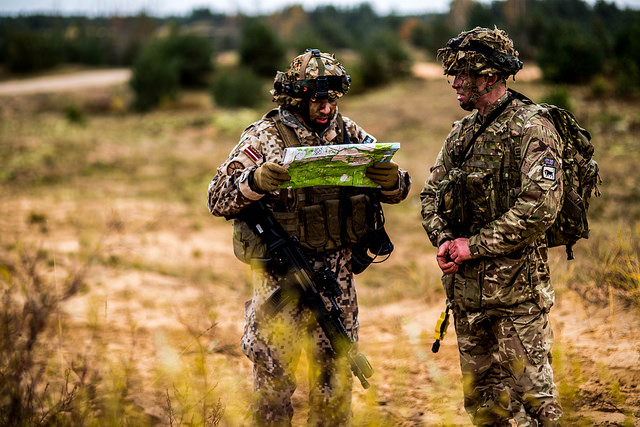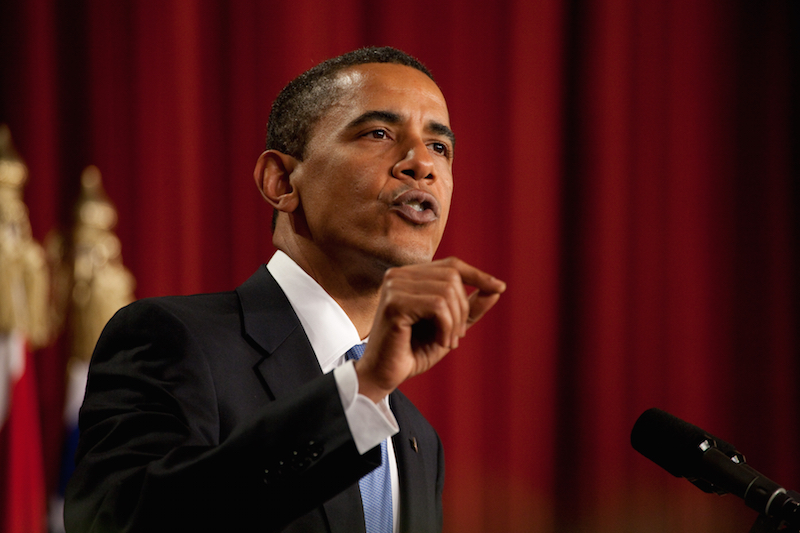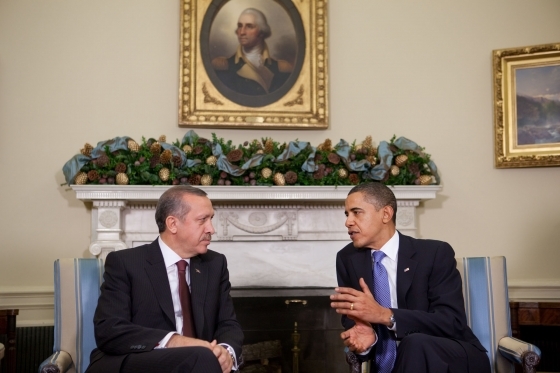On November 23, 2015, the UK revealed its new Strategic Defense and Security Review (SDSR) which confirmed the Cameron government’s intention to maintain and gradually increase spending for the British Armed Forces. For example, the 2015 SDSR stipulates that the Royal Navy will acquire two new aircraft carriers, while new squadrons will be added to the RAF. The 2015 SDSR stands in stark contrast to the 2010 SDSR that emphasized massive cuts in the military because of combat fatigue following the Afghan and Iraqi wars in addition to the 2008 financial crisis.
The 2015 defense policy review testifies to the UK’s ambition of rebuilding its global military power that has been severely degraded in the past decade. Indeed, Britain is increasing its military presence in Europe as part of NATO reassurance measures in the context of Russian aggressive behavior in Eastern Europe. Furthermore, London is aiming to re-establish a military presence East of Suez. As part of this plan, Britain is to redeploy in the Gulf region by increasing arms sales and military cooperation with the Gulf Cooperation Council (GCC) countries weary of a revisionist Iran. In addition, the UK has activated a naval base in Bahrain while another one is to be opened in Oman. Moreover, London is looking to play a more active military role in the Pacific by stepping up its defense partnership with Japan regarding training as well as R and D in the face of Beijing’s newfound assertiveness in the East and South China Seas.
However, the Yes camp’s victory in the BREXIT referendum held on June 23, 2016, can derail Britain’s ambition in rebuilding its global military footprint. Indeed, the uncertainty around the future relationship between the UK and the EU has a negative impact on Britain’s economic growth prospects with the potential of massive public spending cuts including defense. Moreover, since PM Theresa May officially announced that Britain is going for a hard BREXIT, the British economy may suffer for an extended period. Some argue that the long-term gloomy economic forecast might pressure 10 Downing Street to initiate a new SDSR that would be watered down thus complicating the UK’s aspiration to revamp its military might.
That said, despite the turbulent economic times ahead, the UK might be able to continue rebuilding its global military presence by stepping up current “minilateral” military partnerships and creating new ones. As Alice Pannier from SciencePo Paris explained, multilateral military arrangements like NATO group many member States with divergent threat perceptions because of their diverse geographic locations and diverse strategic cultures. A minilateral military partnership only counts a few member States that share the same threat perception as a result of their geographic proximity or have a similar strategic culture. Minilateral partnerships don’t have supranational organs to oversee activities. It is a State-to-State type of arrangement. Minilateral partnerships generally answer to a lack of financial capabilities and promote pooling of military assets from an operational standpoint and encourage the joint development and acquisition of new capabilities whose cost would be otherwise prohibitive to procure on a purely national basis.
In Europe, the UK could step up its minilateral agreement with France under the 2010 Lancaster House Accords born out of financial necessity. The Lancaster House Accords have an operational and capability aspect. The capability dimension comprises the joint development and acquisition of new capabilities such as Unmanned combat aerial vehicles (UCAV) as well as joint nuclear technology research. The operational dimension revolves around the creation of a Combined Joint Expeditionary Force (CJEF) characterized by the pooling of force projection capabilities like amphibious warships thus enabling joint projection of forces where French troops can be deployed overseas via Royal Navy assets and vice versa. Moreover, the CJEF presents a joint command and control structure (C2) enabling French and British forces to operate in a tight fashion. By deepening this bilateral military partnership, the UK will be able to weather the prolonged turbulent economic times that a hard BREXIT could entail.
Parallel to the Anglo-French military partnership, London can hedge its bets by creating a series of minilateral agreements with the other Anglosphere members the US, Canada, Australia and New Zealand. Such minilateral agreements would certainly involve the pooling of capabilities for joint expeditionary operations. For example, an agreement to temporarily combine the C-17 fleets possessed by the UK, Canada and Australia in the context of an ongoing operation could be an option. Moreover, there could be a minilateral agreement among Anglosphere members where they can share hubs scattered across the world hosting prepositioned equipment near actual and potential hot zones.
Despite a probable drop in the defense budget resulting from a possibly volatile economic future, Britain will still be able on one hand to maintain and acquire new power and force projection capabilities. On the other hand, it could decrease its logistical footprint when on operation thanks to sharing the assets and associated costs with other countries. Therefore, the minilateral model may be 10 Downing Street’s best chance to realize its ambition of rebuilding its global military clout in a post-BREXIT era.
Photo: Latvian and British soldiers plan defensive maneuvers during Silver Arrow 2016 (2016) by NATO via Flickr. Photo courtesy of NATO.
Disclaimer: Any views or opinions expressed in articles are solely those of the authors and do not necessarily represent the views of the NATO Association of Canada.




